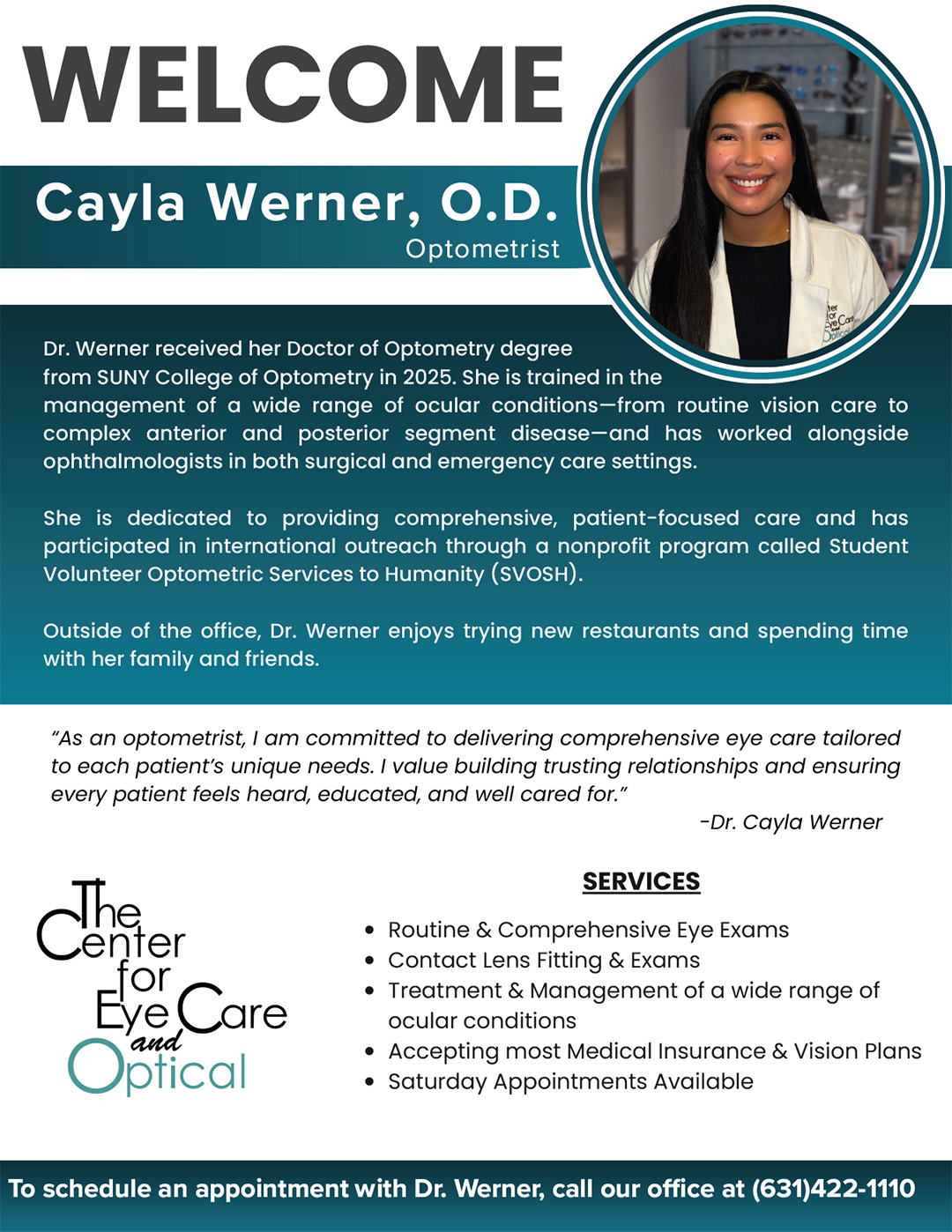
As we get older, it’s natural to notice changes in how we see the world. Blurry reading vision, difficulty driving at night, or increased sensitivity to light are just a few common signs that aging may be affecting your eyes. While some of these changes are expected, others can indicate more serious conditions. At The Center for Eye Care and Optical, we believe that staying informed and proactive is key to preserving your vision.
Common Age-Related Vision Changes
Several changes in vision are considered a normal part of aging. These typically include:
• Presbyopia: Starting around age 40, you may notice difficulty focusing on close-up objects, such as small print or your smartphone. This condition, called presbyopia, occurs as the lens of the eye loses flexibility.
• Reduced Contrast Sensitivity: Aging can diminish your ability to distinguish between shades of similar colors or see well in low-light conditions, making activities like night driving more challenging.
• Dry Eyes: Tear production can decrease with age, leading to irritation, redness, or a gritty feeling in the eyes.
• Light Sensitivity and Glare: Older adults may become more sensitive to bright lights and glare due to changes in the lens of the eye.
Conditions That Become More Common with Age
In addition to these normal changes, aging also increases the risk of developing certain eye diseases:
• Cataracts: Clouding of the eye’s lens, leading to blurry or dim vision.
• Age-Related Macular Degeneration (AMD): Affects central vision and can make reading or recognizing faces difficult.
• Glaucoma: A group of eye diseases that can damage the optic nerve, often associated with increased eye pressure.
• Diabetic Retinopathy: A complication of diabetes that can affect vision and potentially lead to blindness if left untreated.
How to Adapt and Protect Your Vision
While some changes in vision are inevitable with age, there are many proactive steps you can take to adapt and preserve your sight.
First, be sure to schedule regular eye exams. Comprehensive eye exams can detect changes in your vision early and screen for age-related eye diseases before symptoms become severe. Early detection is often the key to more effective treatment and better long-term outcomes.
Wearing the right eyewear can also make a significant difference. Whether you need reading glasses, bifocals, or prescription lenses, using the appropriate eyewear can improve comfort and visual clarity. Special features such as anti-reflective coatings and photochromic lenses can help reduce glare and improve adaptability to changing light conditions.
It’s equally important to protect your eyes from harmful UV exposure. Wearing sunglasses that block 100% of UV rays helps reduce your risk of developing cataracts and other sun-related eye conditions over time.
Lastly, maintaining a healthy lifestyle supports overall eye health. Eating a balanced diet rich in leafy greens, colorful fruits, and omega-3 fatty acids can benefit your vision. Avoiding smoking, managing chronic health conditions like diabetes, and staying physically active all contribute to better circulation and healthier eyes.
When to Seek Immediate Care
If you experience sudden vision changes, such as flashes of light, floaters, eye pain, or a loss of vision, seek medical attention right away. These could be signs of a serious condition that needs prompt treatment.
Take the Next Step for Your Eye Health
Aging doesn’t have to mean giving up clear, comfortable vision. By understanding the natural changes that occur and taking steps to adapt, you can continue to enjoy an active lifestyle with healthy eyesight. Routine eye care, protective habits, and timely treatment can make a significant difference in preserving your vision as you age.
At The Center for Eye Care and Optical, we’re here to help you see clearly at every stage of life. Schedule your comprehensive eye exam and let our team support your vision needs with personalized care and advanced solutions. Visit our office in West Islip, New York, or call (631) 825-7725 to book an appointment today.











